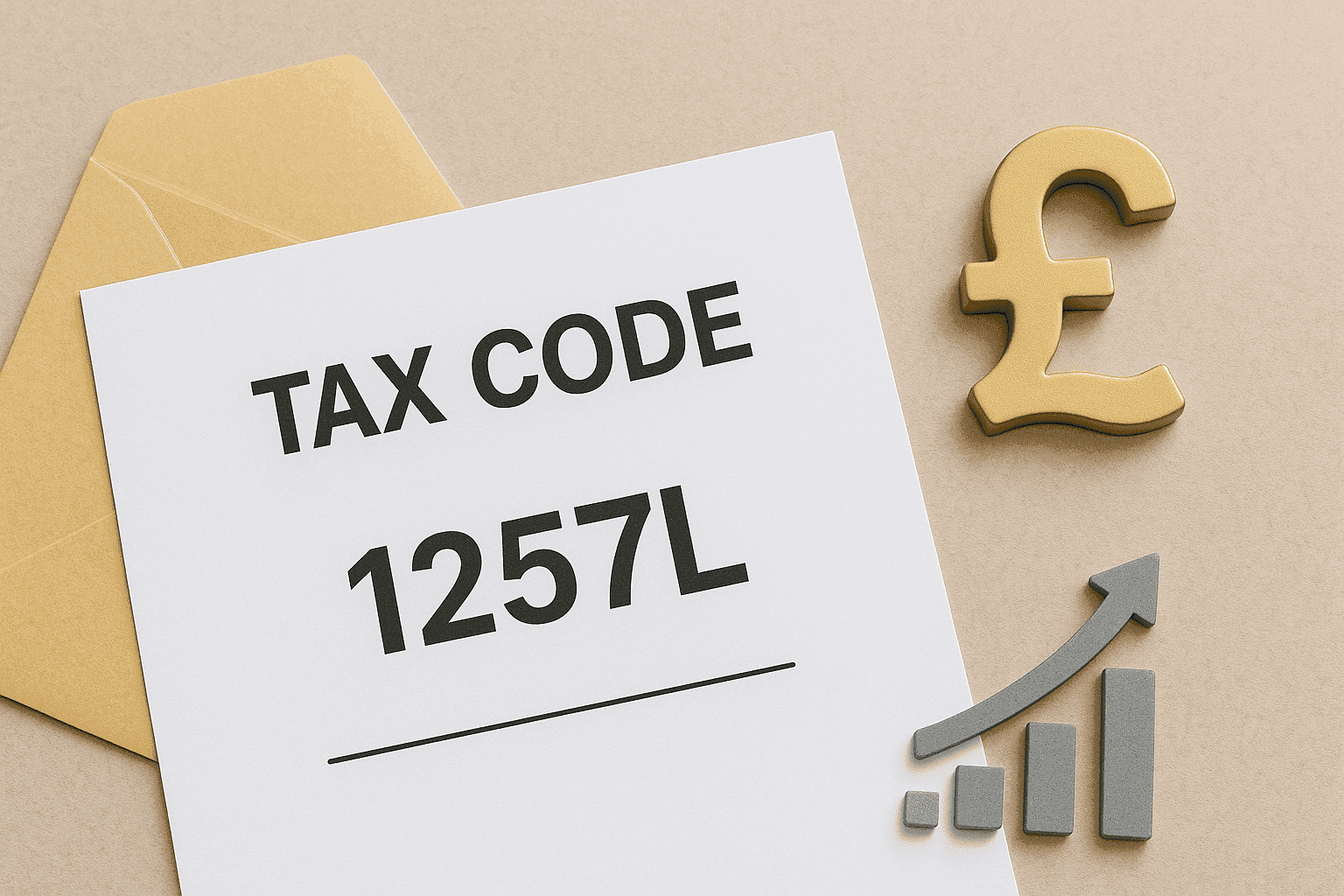How Your Tax Code and Salary Are Affected When You Change Jobs
By calculatemysalary.co.uk Editorial Team
Explore how changing jobs can impact your tax code and salary in the UK. Understand the role of HMRC in updating your tax code, what should be checked on the payslip, and steps to prevent tax overpayment.

Introduction
Starting a new job often involves paperwork that affects your take-home pay. One area to check is how changing jobs impacts your tax code and salary.
Your tax code tells your employer how much Income Tax to deduct each pay period. If it’s wrong, you could overpay or underpay and face a later bill or refund.
This guide explains how HMRC updates your code, what to check on your payslip, and steps to get the right pay from day one.
Understanding Tax Codes in the UK
A tax code is a combination of numbers and letters provided by HM Revenue and Customs (HMRC) which communicates to your employer the portion of your income that is tax-free before PAYE taxation applies.
- The standard personal allowance for 2025/26 is set at £12,570.
- Employees with one job will likely have a tax code of 1257L.
- Your tax code can be altered if you have multiple jobs, receive benefits from work, or have unpaid tax.
Small tax code mistakes can add up over a year. When you change jobs, here’s what HMRC does.
What Happens to Your Tax Code When You Change Jobs
Your tax information is not transferred automatically when you start a new job. Instead, your new employers and your former employers send a set of documents, and HMRC updates your record based on these documents.
The Role of the P45
- Your employer will be expected to issue a P45 if you leave their employment.
- It provides details regarding your earnings and taxes paid in the tax year up to that point.
- It should be given to your new employer, who in turn sends it to HMRC, allowing them to assign the correct tax code straightaway.
No P45? Expect Emergency Tax
If you do not have a P45 (for example, first job or a break in employment), your new employer may put you on an emergency tax code. In that case:
- You will be taxed on the assumption that you have only a fraction of your allowance.
- Your payslip may show a tax code of 1257L W1/M1 (week 1/month 1 basis).
This isn’t permanent — HMRC should correct it once your details are confirmed, but your take‑home pay may be lower meanwhile.
Common Mistakes When Switching Jobs
Changing jobs is a common time for tax code mistakes. Watch for:
-
The Wrong Tax Code Has Been Applied
If HMRC believes you have two jobs, you may end up with two personal allowances. This would result in a tax underpayment followed by a later tax bill. -
Emergency Tax Has Not Been Updated
If your details do not reach HMRC promptly, you may be on emergency tax for months. -
Benefits In Kind Not Carried Over
Company car or medical insurance from a previous employer may continue to affect your tax code with the new employer.
Multiple Income Streams
- Side jobs, freelancing, or a second job can complicate your tax code
- If any of these apply, use the steps below to fix your code quickly
How to Check and Correct Your Tax Code
After your first payday in the new role, check your payslip. Follow these steps:
Step 1: Check Your Payslip
Check your tax code. If it isn’t what you expect (e.g., 1257L for most people), investigate.
Step 2: Compare Against HMRC Records
Log in to your HMRC personal tax account to check the code on record.
Step 3: Contact HMRC if Needed
If something looks wrong:
- Call HMRC on 0300 200 3300
- Or update your details online
Step 4: Keep Copies of Your P45/P60
Keep these documents for proof of income and tax paid.
How Your Pay Is Impacted
Your gross salary won’t change because of your tax code, but your net pay may vary depending on how HMRC allocates your allowance.
Example Scenario:
- You earn £30,000 at your old employment and move to a new employer mid-tax year.
- Your new employer may place you on emergency tax if they do not receive your P45.
- Instead of taking home around £2,000 per month, you might see £1,850 until HMRC amends your code.
That’s £150 less each month — money for bills, savings, or debt repayment.
Any overpaid tax is usually refunded automatically once HMRC updates your code.
Tips
- Get your P45 from your old employer before you leave
- Give your new employer your tax details as early as possible
- Check your payslip after your first payday
- If you have multiple jobs, freelance, or have company benefits, remember to update HMRC
- Double-check your take-home pay using a salary calculator, like our salary calculator
Conclusion
Changing jobs can affect your pay. Knowing how your tax code and salary work together helps you stay in control.
Check your payslip, keep your P45, and make sure HMRC has the right details to avoid emergency tax and ensure correct pay.
Do the admin early to prevent problems later.
For more detail, see Check your Income Tax for the current year (GOV.UK), Tax codes explained (GOV.UK), and PAYE: Pay As You Earn (HMRC Guide).